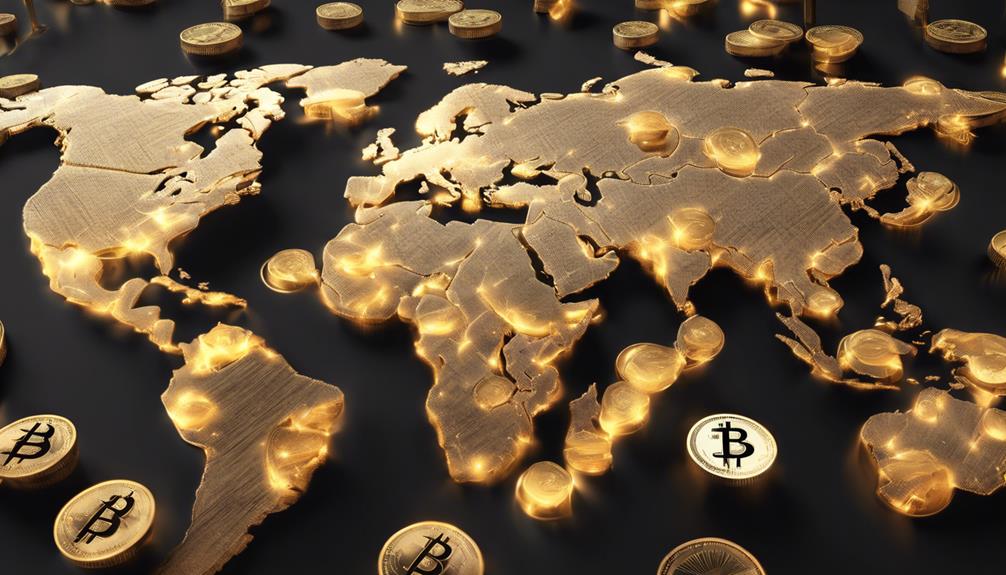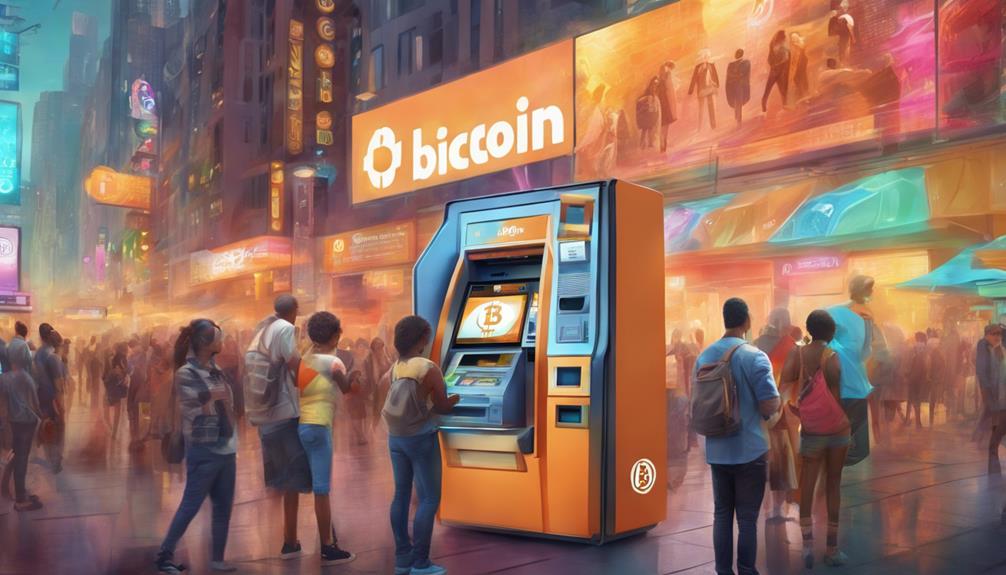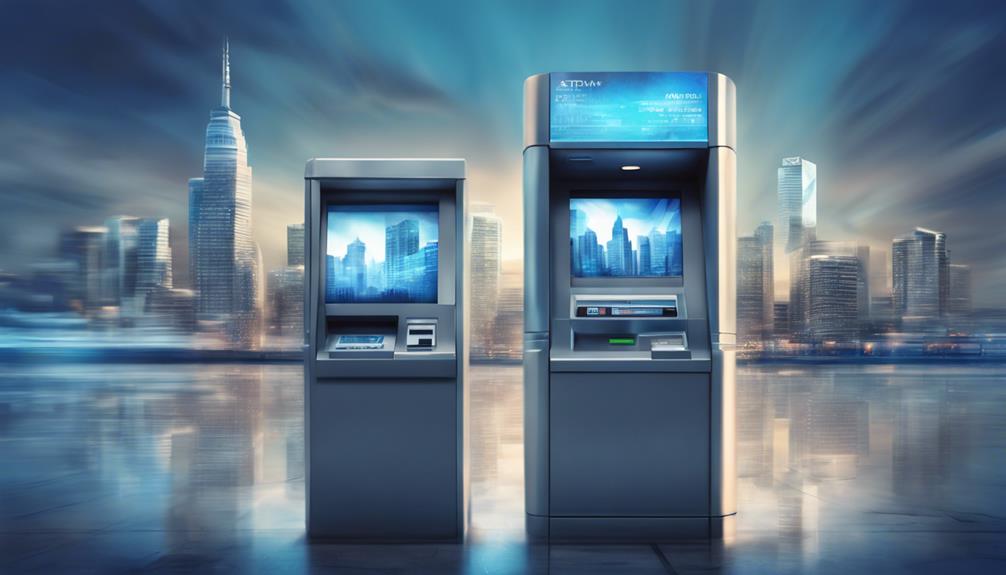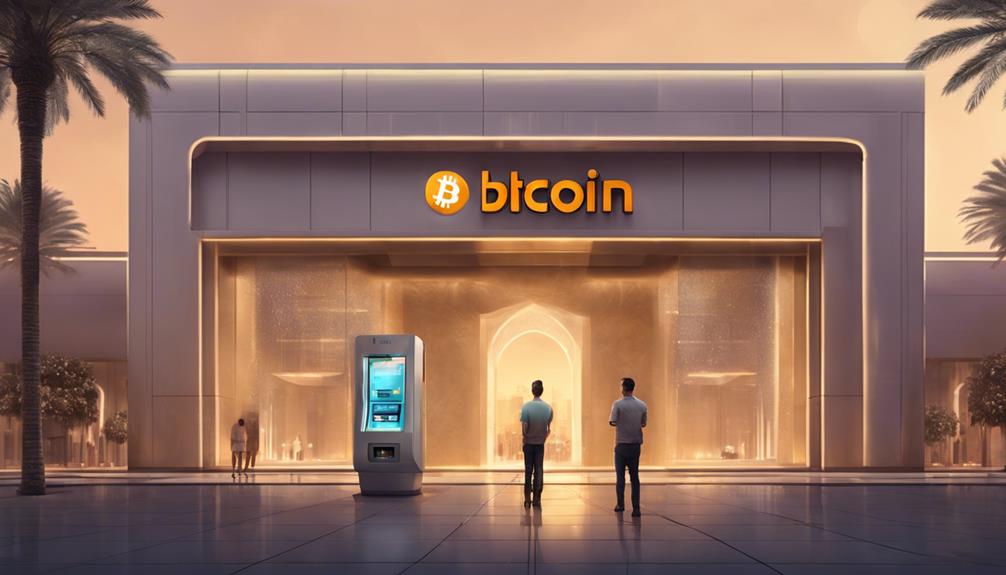What Will Shape DeFi Tech in Coming Years?

As you navigate the evolving landscape of decentralized finance (DeFi), you'll find that its future hinges on several pivotal advancements. Consider the integration of Layer 2 technologies which promise to enhance scalability, or the emerging role of artificial intelligence in streamlining DeFi operations. Equally crucial are the enhancements in security protocols and the adaptation to the shifting sands of global regulatory frameworks. Each of these elements not only influences the current state of DeFi but also sets the stage for its next evolutionary leap. The question now is, how will these factors converge to redefine the norms of financial interactions?
Scalability Enhancements in DeFi

As DeFi technologies evolve, enhancing scalability has become crucial. You've likely experienced slow transaction times and high fees during network congestion. This isn't just annoying; it's a barrier that prevents DeFi from competing with traditional financial systems.
To address these issues, developers are implementing Layer 2 solutions like rollups and sidechains, which process transactions off the main Ethereum blockchain, drastically reducing load and costs.
You might wonder how these solutions maintain security while boosting efficiency. Well, they use various mechanisms to ensure transactions are secure before finalizing them on the main blockchain. This dual approach offers you faster and cheaper transactions without compromising on security. It's like having your cake and eating it too!
Moreover, sharding is on the horizon, which will split the database horizontally to spread the load. Think of it as dividing a large group of people into smaller, more manageable teams, each processing transactions parallelly. This will further enhance DeFi's ability to scale and could lead to a significant reduction in network congestion.
These advancements aren't just technical upgrades; they're essential for DeFi to meet growing user demands and for you to enjoy a smoother, more cost-effective experience.
Regulatory Developments Impacting DeFi
Navigating the evolving landscape of regulatory frameworks is crucial as governments worldwide begin to recognize and address the unique challenges posed by decentralized finance (DeFi). You're in a position where understanding these changes isn't just beneficial; it's essential to operate successfully in the DeFi space. Regulatory bodies are stepping up their game, and you'll see more guidelines that aim to protect you and other investors from potential risks like fraud and market manipulation.
As you engage with DeFi platforms, you'll notice an increasing emphasis on compliance. This means you'll need to be diligent in following new regulations that may dictate stricter KYC (Know Your Customer) and AML (Anti-Money Laundering) protocols. These changes could influence how quickly you can access DeFi services, potentially adding delays as platforms implement more comprehensive verification processes.
Moreover, the landscape of cross-border DeFi transactions is getting more attention. You'll have to stay informed about international regulatory developments that could affect your investments. Different regions may have varying degrees of openness towards DeFi, influencing where and how you decide to invest.
Staying ahead of these regulatory changes is more than just keeping out of trouble; it's about strategically positioning yourself in a rapidly evolving market.
Integration of AI With Defi

While staying informed about regulatory changes remains important, another significant development in the DeFi landscape is the integration of artificial intelligence (AI). You'll find that AI is reshaping how you interact with DeFi platforms, from automated trading to personalized financial advice. This technology isn't just about streamlining processes; it's transforming your financial decision-making capabilities.
Imagine AI-powered bots that conduct trading with precision beyond typical human capabilities, or algorithms that analyze vast amounts of data to offer you tailored investment strategies. These advancements mean you can maximize returns and minimize risks far more efficiently than ever before.
Moreover, the integration of AI is enhancing user experiences by simplifying complex processes. You no longer need to be a finance expert to navigate the DeFi space.
Furthermore, AI is playing a crucial role in predictive analysis. By processing current and historical market data, AI algorithms can forecast market trends, giving you insights that help you make proactive, informed decisions rather than reactive ones.
This integration not only boosts your confidence in managing assets but also opens up new opportunities for innovation in financial products.
As you delve deeper into DeFi, watch how AI continues to break barriers, making sophisticated financial tools accessible and understandable for everyone.
Advances in DeFi Security Measures
Security remains a top priority in the DeFi sector as advancements continue to evolve rapidly, safeguarding your digital assets more effectively than ever before. As you dive deeper into the world of decentralized finance, you'll notice that multi-factor authentication (MFA) and hardware security modules (HSMs) have become increasingly prevalent. These technologies don't just add an extra layer of security; they're reshaping how transactions are verified and assets are protected.
You're also seeing smarter contract audits becoming the norm rather than the exception. These aren't just cursory checks but in-depth analyses performed by both AI and human experts, designed to spot potential vulnerabilities before they can be exploited. This proactive approach significantly reduces the risks associated with smart contracts.
Moreover, insurance protocols have begun to play a crucial role in DeFi. They offer you a safety net, minimizing potential losses from hacks or contract failures. This isn't just about protecting individual assets; it's about building trust and stability across the entire DeFi ecosystem.
Rise of Cross-Chain Protocols

As the DeFi landscape expands, cross-chain protocols are becoming essential, enabling seamless transactions across various blockchain networks. You're witnessing a revolution where these protocols aren't just optional; they're critical in creating a truly interoperable financial ecosystem. By bridging different blockchains, you can now move assets and data between, say, Ethereum and Solana without a hitch. This isn't just convenient; it's transforming how liquidity is managed and accessed in DeFi markets.
Imagine you're investing in a project that's blockchain-agnostic. Thanks to cross-chain technology, you don't have to worry about which blockchain the project is on. You can interact with multiple chains using a single interface, simplifying your investment process and potentially reducing transaction costs.
Moreover, this technology enhances the scalability of DeFi applications by distributing workload and transactions across multiple chains, thus reducing congestion and improving transaction speeds.
As you look towards the future, consider how cross-chain protocols might continue to evolve. They're not just facilitating current operations; they're paving the way for new forms of decentralized finance that you haven't even imagined yet. This is an exciting time to be involved in DeFi, as these technologies redefine financial boundaries and expand your investment possibilities.
Sustainability Practices Within Defi
In response to growing environmental concerns, the DeFi sector is now embedding sustainability practices into its protocols. You'll notice a shift towards more energy-efficient consensus mechanisms like Proof of Stake (PoS), which markedly reduces the carbon footprint compared to the traditional Proof of Work (PoW) models used by networks like the original Bitcoin setup. This change isn't just good for the planet; it's also enhancing the scalability and speed of transactions, which in turn, improves overall user experience.
Moreover, you're seeing an increasing number of DeFi projects that are integrating eco-friendly features directly into their platforms. For instance, some are dedicating a portion of transaction fees to environmental causes or leveraging blockchain technology to facilitate carbon credit trading. These initiatives show a commitment to not just financial innovation but also to a sustainable future.
Additionally, as you delve deeper into these platforms, you'll encounter improved transparency around energy usage and sustainability efforts. This isn't just for show. It provides you, the user, with the ability to make informed decisions about the environmental impact of your investments, aligning your financial goals with your values.
As DeFi grows, expect these practices to become the standard, pushing the entire financial sector towards greater sustainability.
Expansion of DeFi in Global Markets

With the evolution of technology and regulatory landscapes, DeFi is rapidly making its mark on global markets. You're witnessing a surge in adoption as countries recognize the potential of decentralized finance to enhance their financial systems. Emerging economies, in particular, are leveraging DeFi to skip traditional banking hurdles and directly empower their citizens with more accessible financial services.
As you explore this expansion, you'll see DeFi platforms collaborating with local businesses and governments to tailor solutions that meet unique market needs. These partnerships are crucial, facilitating smoother integrations into existing financial ecosystems and ensuring compliance with local regulations. You're part of a global movement that's not only democratizing access to finance but also fostering economic resilience.
Moreover, the increasing internet penetration and smartphone usage worldwide are propelling DeFi's reach. You can manage assets, execute transactions, and access financial services from your device, anytime and anywhere. This convenience is revolutionizing how you interact with money, making financial inclusivity more than just an ideal—it's becoming a reality.
As DeFi continues to grow, you're at the forefront of a financial revolution, reshaping how the world views and utilizes money beyond borders.
Innovations in DeFi Lending Services
Building on the global expansion of DeFi, lending services within this sector are experiencing significant innovation, reshaping how you access and manage loans.
You're now seeing platforms that offer instant loan approvals without the need for credit checks, thanks to algorithms that assess your digital asset history instead of traditional credit scores. This marks a shift from the old, cumbersome bank procedures you might be used to.
You'll also find that interest rates are becoming more personalized. DeFi platforms use smart contracts to adjust rates based on current market conditions and your specific risk profile, which can change dynamically. This flexibility ensures you're not stuck with rates that don't reflect your current situation.
Moreover, collateral options are expanding beyond simple cryptocurrency tokens. Some services now accept non-fungible tokens (NFTs) as collateral, allowing you to leverage digital art or virtual real estate for financial liquidity. This innovation isn't just broadening the usability of assets in the digital world; it's providing you with more avenues to secure funding without selling off your investments.
These advancements are making DeFi lending more accessible and tailored to meet your needs, giving you greater control over your financial dealings in the decentralized space.
Influence of Quantum Computing

Quantum computing is set to transform the DeFi landscape by significantly enhancing the speed and security of transactions. With the advent of quantum capabilities, you'll witness transaction processes that once took minutes or even hours completed in mere seconds. This is because quantum computers perform calculations at speeds unattainable by traditional machines, leveraging the principles of quantum mechanics.
You're also going to see a drastic improvement in security. Quantum cryptography introduces a new layer of protection against cyber threats, which is crucial as DeFi platforms become increasingly targeted by hackers. This technology uses the principles of quantum key distribution, a method that's theoretically secure against any attempt at decryption, even by other quantum machines.
However, it's not all smooth sailing. The integration of quantum computing into existing DeFi technologies poses significant technical challenges. You'll need to be prepared for the potential overhaul of current cryptographic methods, as quantum computers have the power to break many of the cryptographic algorithms that secure the internet today.
As you look towards the future, it's clear that quantum computing won't only redefine the efficiencies and operations of DeFi platforms but also necessitate a foundational shift in how security is approached in the digital finance space.
Evolution of DeFi User Interfaces
As quantum computing redefines security and speed in DeFi, another significant advancement is unfolding in the evolution of user interfaces. You're about to witness interfaces that aren't just functional but intuitive, making DeFi platforms accessible to everyone, not just the tech-savvy.
Imagine dragging and dropping assets into smart contracts with interfaces that feel as familiar as using your favorite smartphone app.
These new interfaces will guide you through complex transactions with ease. You'll get clear, real-time feedback on transaction costs and potential risks, helping you make informed decisions without digging through dense documentation. Interactive tutorials will onboard you quickly, turning complex DeFi concepts into digestible information.
Moreover, personalization is key. Future DeFi applications will adapt to your preferences and history, presenting you with options that make sense for your investment style and goals. No more one-size-fits-all solutions; instead, you'll have a platform that grows and learns with you.
This isn't just about aesthetics; it's about functionality that brings DeFi to the masses. As these interfaces evolve, they'll become the bridge that connects average users to the sophisticated world of DeFi, making it as easy to use as checking your email.
Conclusion
As you navigate the future of DeFi, you'll witness significant transformations. Enhanced scalability through Layer 2 solutions will speed things up, while AI integration optimizes your interactions. Expect tighter security with advanced measures and smoother transactions via cross-chain protocols. Quantum computing will further amplify speed and security. Plus, DeFi's global reach and innovative lending services will expand. Regulatory changes will guide your journey, and user interfaces will become more intuitive, personalizing your DeFi experience.





